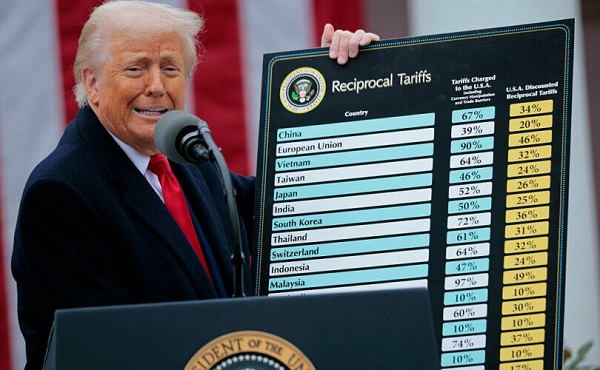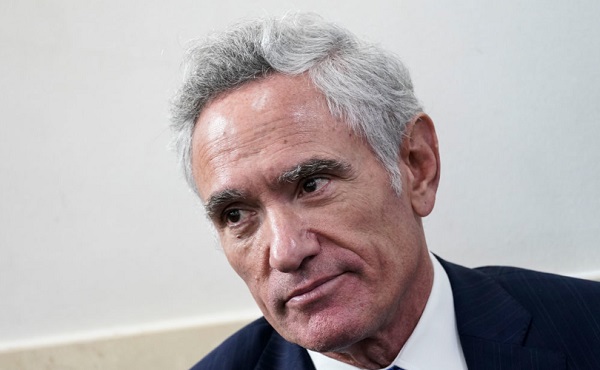Opinion
Please share if you pick up what we’re lying down: what you think? [email protected]

2025 Federal Election
The status quo in Canadian politics isn’t sustainable for national unity

From Energy Now

William Lacey

The Willful Blindness of the East
That’s it. I’m officially a separatist…sort of. Really, I’m just completely tired of Ontario and Quebec. After 10 years of frozen economic output, a runaway immigration program, and a debt profile that went hyperbolic, Eastern Canada appears to have decided that another four years of the same old, same old is a good path forward.

In short, they think that the clown car that led this country, after just swapping out the driver (who happened to be one of the people who was supplying the directions), is a good idea.

Having been born and raised in Alberta, I feel that there is a significant amount of the battered spouse syndrome that is alive and well in the province, with people saying “I know the rest of the country love me. They’re just having a bad day.” No matter how many times I ask “what’s in this great union for Alberta” I get the same kitschy feedback. Be grateful for Canada and its social programs and “free” medical system (they are broken), Canada in the Great War (umm…that was 107+ years ago), great moments in sports, tidewater access (umm….that’s a quiet threat), etc. When it comes to one tangible answer, I just get silence. But the reality is that the East is perfectly happy to look down their noses, take the money, and then say “you are not one of us; you lack provenance!” Now some of you may say that is bullshit and that Albertans are an ungrateful bunch. But being someone who has lived in both the East and West, and worked with people who come from all walks, I know firsthand the bias exists.
Alberta, and the West, have made outsized contributions to confederation, much of that through the system that we call equalization. The idea behind this system was so that all parts of Canada get equal treatment through the taxation system, taking funds generated by “have” provinces and redistributing those funds to “have not” provinces, making sure that all are afforded the basics that Canadians have taken to be their definition of Canada. This is essentially done by looking at the fiscal capacity of each province, based on the average national tax rate, and then “balance” the books based on this average capacity. And that’s fine. But in the world I live in, when one group reaches out and helps the other, there is an acknowledgement of the effort, not a “va te faire foutre!” like comes out of Quebec. There is a certain irony from the chart below that it looks like Quebec is giving the finger to the rest of the country.

The reality is that the East views it as beneath them to say thank you for such a contribution. Moreover, many go out of their way to vilify the work that is done and to demean those who do it. So you wonder why the frustration mounts? The fact of the matter is that I believe that the Conservative movement has been codified out East as a fringe movement, only to be voted for when the Liberals need a brief time out.
Do I think separation is a real possibility? Not really. There are numerous challenges, some of which are more difficult than others. The largest one is probably related to indigenous matters, but they too likely suffer from a version of battered spouse syndrome. There is an underlying tenet that the Federal Government cares for them, but based on what I have seen, that is a unique “standard of care” that is being applied. I actually believe that better outcome for the indigenous people could be achieved under a new relationship, assuming both sides were open minded.
Now before you say “you are on the fringe, you don’t represent the masses”, I can tell you that I know a lot of people who are leaders in their professions within this province, whether that is health, law, business, etc. that all echo these feelings. The frustration is palpable, it is real and it is broader than you think.
So, with this I finally raise my hand and make the call that “I’m tired of the relationship I am in.” This pains and saddens me deeply, as I am someone who has worn the maple leaf with great pride and who has been happy to pronounce “I am Canadian.” I think it’s time to reconsider who I view as my partner.
COVID-19
Biden Admin concealed report on earliest COVID cases from 2019

 MxM News
MxM News
Quick Hit:
A newly uncovered Defense Department report reveals that seven U.S. troops may have contracted COVID-19 during the 2019 World Military Games in Wuhan—months before the official pandemic timeline. The Biden administration kept the report from the public for over two years, despite a legal requirement to release it.
Key Details:
- A December 2022 Pentagon report shows seven U.S. service members showed COVID-like symptoms after attending the 2019 Wuhan games.
- The Biden administration withheld the report, which was required by law to be made public in 2022, until it was quietly posted online in March 2025.
- Evidence contradicts Biden officials’ 2021 claims and adds weight to theories that COVID-19 leaked from a Chinese lab before December 2019.
Diving Deeper:
The Biden administration withheld a critical Pentagon report for more than two years, one that sheds new light on the origins of the COVID-19 pandemic. According to documents obtained by the Washington Free Beacon, seven U.S. military service members may have contracted COVID-19 during or shortly after the 2019 World Military Games in Wuhan, China—a full two months before China officially acknowledged the outbreak.
The report, completed in December 2022, was mandated for public release by the National Defense Authorization Act. Yet, the administration only passed it to select Congressional committees and failed to make it publicly accessible as required. It wasn’t until March 2025 that the report quietly appeared on a Defense Department site under a section dedicated to “quality-of-life” issues—far from public view.
This revelation directly contradicts claims made by Biden administration officials in 2021, including then-Defense Department spokesman John Kirby, who stated there was “no knowledge” of any infections among the U.S. participants. The Trump administration had also denied early on that troops were tested or showed symptoms, citing the timing of the games before China’s outbreak announcement.
Held just miles from the Wuhan Institute of Virology—where controversial, U.S.-funded gain-of-function research was conducted—the 2019 games have long drawn suspicion from national security and public health experts. Prominent biologist Dr. Richard Ebright told the Free Beacon the report confirms that COVID was already circulating and likely leaked from the Wuhan lab: “This new information strengthens U.S. and allied intelligence data.”
Adding more context, athletes from European countries such as France, Germany, and Italy also reported flu-like symptoms in Wuhan, describing the city at the time as unusually empty—a “ghost town.” All seven American service members recovered quickly, and the Pentagon has not revealed when it first became aware of the cases.
Sen. Joni Ernst (R-Iowa) called the report’s concealment an “outrage,” noting it directly undermines the long-promoted narrative that COVID began at a Wuhan wet market in December 2019. “Taxpayers deserve to know the truth,” she said. “This report should have been made public immediately.”
Congressional Republicans have consistently asserted that the Wuhan games were among the first super spreader events of the pandemic. In 2021, House Foreign Affairs Republicans issued findings supporting that theory. Meanwhile, multiple federal agencies—including the CIA, FBI, and Energy Department—now publicly believe COVID most likely originated from the Wuhan Institute of Virology.
-

 2025 Federal Election2 days ago
2025 Federal Election2 days agoHarper Endorses Poilievre at Historic Edmonton Rally: “This Crisis Was Made in Canada”
-

 2025 Federal Election2 days ago
2025 Federal Election2 days agoMark Carney’s radical left-wing, globalist record proves he is Justin Trudeau 2.0
-

 conflict2 days ago
conflict2 days agoZelensky Alleges Chinese Nationals Fighting for Russia, Calls for Global Response
-

 2025 Federal Election2 days ago
2025 Federal Election2 days agoAn In-Depth Campaign Trail “Interview” With Pierre Poilievre
-

 Business2 days ago
Business2 days agoTrump’s tariff plan replaces free trade with balanced trade. Globalists hate that.
-

 2025 Federal Election18 hours ago
2025 Federal Election18 hours agoConservative Party urges investigation into Carney plan to spend $1 billion on heat pumps
-

 Censorship Industrial Complex2 days ago
Censorship Industrial Complex2 days agoScott Atlas: COVID lockdowns, censorship have left a ‘permanent black mark on America’
-

 2025 Federal Election2 days ago
2025 Federal Election2 days agoDon’t double-down on net zero again



